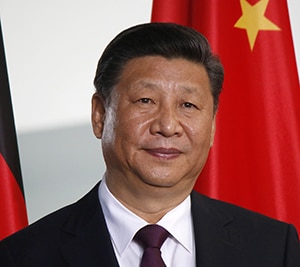Zhu Guangyao, China’s vice minister of finance, surprised the country’s Communist Party members in November when he announced the government would allow more foreign investment in its domestic economy.

The shift is meant to bolster China’s stagnant financial markets and includes scenarios where foreign entities can have a controlling interest in the country’s financial businesses.
Though China has made strides in opening its equity and bond markets to foreign investors, American banks and securities firms have complained for decades that China’s ownership-cap policy marginalized them in one of the fastest-growing financial systems on the planet.
The historic announcement could mean a banner 2018 for global financial companies that will now have unprecedented access to China’s economy, which has slowed over the last two years.
The announcement bolstered the reform credentials of Chinese president Xi Jinping less than a month after the party cemented Xi’s status as the nation’s most powerful leader in decades. It also coincided with Donald Trump’s visit to Beijing, though the US president didn’t know it was coming.
But can US companies be expected to dive in? JPMorgan Chase and Morgan Stanley, along with some other global banks—like UBS—have already expressed interest.
James Gorman, Morgan Stanley’s global CEO, said in a statement and in an interview with the Hong Kong–based South China Morning Post on November 13 that his bank is looking to increase its stake in its mainland China operations with its bank partners there to 51%.
When asked whether the investment bank would raise its level of operations in China to a controlling share, Gorman responded coolly, “I would certainly hope so.”
“A global corporation of the size and stature of Morgan Stanley should control its destiny,” the executive said.
Look to next year to see whether American investment banks feel as confident in the new Chinese policy shift as they do now.



